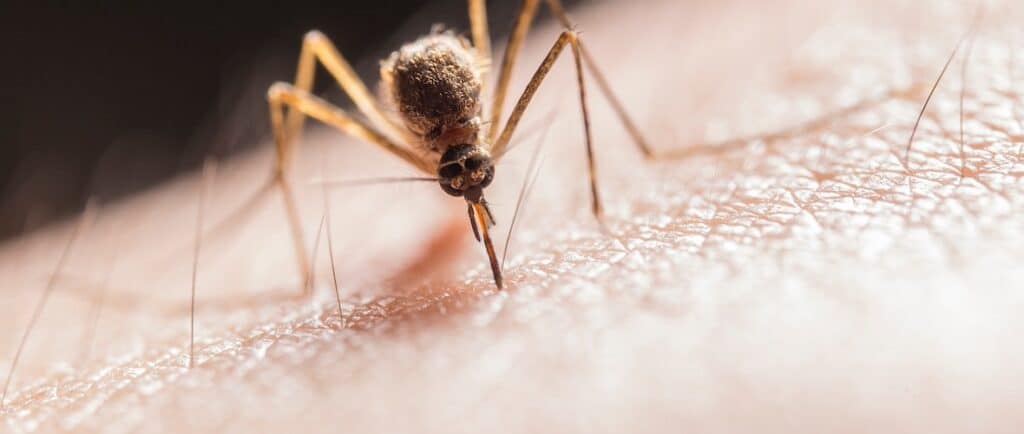Introduction
Malaria is a life-threatening disease caused by parasites transmitted through the bites of infected female Anopheles mosquitoes. It is a significant public health problem in many developing countries and is responsible for thousands of deaths each year. According to the World Health Organization (WHO) report of 2022, there were an estimated 247 million cases of malaria worldwide coupled with an estimated number of 619 000 deaths in 2021.
While malaria can be treated, it is better to prevent it altogether. In this blog, we will discuss some preventive measures that can be taken to control the spread of malaria, including the use of insecticide-treated mosquito nets, chemical and non-chemical methods to destroy mosquito breeding sites, and antimalarial medication. By following these strategies, individuals and communities can reduce their risk of contracting malaria and contribute to a healthier, more prosperous future.
Understand the Cause
Malaria is a disease caused by the Plasmodium parasite and is transmitted through the bite of infected female Anopheles mosquitoes. Awareness about these mosquitoes and their breeding sites is the first step in preventing and controlling malaria. One can get infected with these mosquitoes during the rainy season or in places where there are still waters or swamps. Understanding the areas that have the maximum risk can help in the prevention of malaria.
Wear protective clothing
When visiting or living in a malaria-prone area, it’s important to wear clothing that can protect you from mosquito bites. Long-sleeved shirts, long pants, socks, and shoes can give you maximum protection from mosquitoes. Loose clothing also helps in reducing the chances of getting mosquito bites.
Use Mosquito Nets
When going to bed, it’s important to use mosquito nets to prevent bites. Mosquitoes are most active between dusk and dawn, so it’s best to keep the nets close to your bed. Mosquito nets should be either hung or mounted professionally to avoid small gaps.
Cover Doors and Windows
Closing doors and windows on time can prevent mosquitoes from entering homes. If living in a mosquito-prone area, one should consider installing flyscreens over doors and windows. These will keep mosquitoes and other insects from entering the house.
Using Mosquito Repellents
Mosquito repellents are another effective way of preventing and controlling malaria. Mosquito repellents can be applied directly to the skin, and some can be sprayed into the air or on clothing. These repellents keep mosquitoes away from the body and reduce the chances of contracting the infection.
Environmental Management
This involves carrying out regular and proper cleaning of stagnant water and bushes. Stagnant water provides a breeding environment for mosquitoes. Proper disposal of wastes and drainage systems will also help improve the surrounding environment.
Use of Insecticides
Insecticides are essential in controlling and preventing the spread of malaria. Indoor residual spraying (IRS) and larviciding are effective ways of killing mosquitoes and reducing their population. Use of insecticide-treated bed nets is also an excellent way of controlling malaria in endemic areas.
Regular Testing and Treatment
Early diagnosis of malaria is critical in preventing and treating the infection. Regular testing for malaria and immediate treatment is necessary for people living in high-risk malaria-prone areas. Treatments usually depend on the severity of the infection, age of the infected person, and the type of malaria.
Vaccination
Malaria vaccines offer the best chance of preventing and controlling malaria. Vaccines stimulate the immune system to fight the Plasmodium parasite. Although no vaccine protects against all types of malaria, countries with high malaria rates have started the malaria vaccine trials with some vaccines already recommended by WHO.
Education and awareness
Education is a critical tool in preventing and combating malaria. Awareness campaigns should be carried out in malaria-prone areas to educate the community about the dangers of malaria and their prevention. Health education materials, posters, and public announcements can also be used to create awareness.
Enhance Malaria Surveillance
Surveillance can help detect and report malaria outbreaks. Collaboration between health departments, surveillance systems, and the public health sector can also help in the timely detection and management of malaria outbreaks.
All in all
In conclusion, preventing and controlling malaria requires a concerted effort from individuals, communities, and governments. It’s important to be aware of the dangers of malaria, the causes, and effective prevention measures. By practicing good hygiene, using mosquito nets, insecticides, and getting regular testing and treatment, we can reduce the spread of malaria and the consequent deaths.








